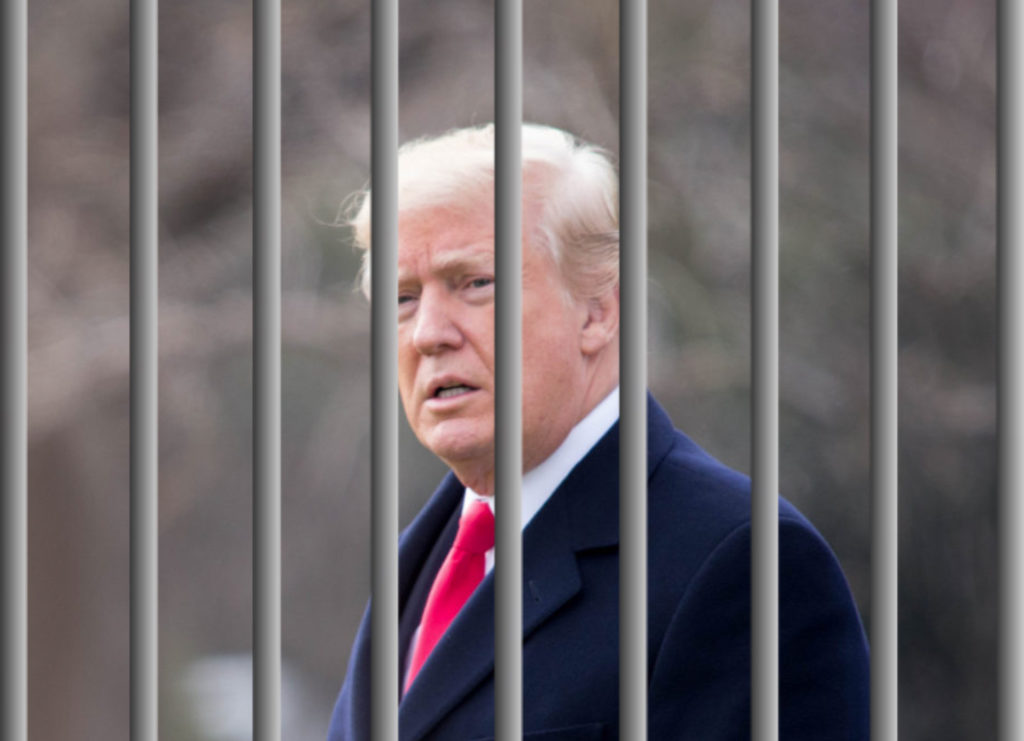Justice is coming

There are certain quiet clues that commentators search for when a grand jury investigation is starting to look confident. It’s the point at which they start calling witnesses, and the higher up the food chain the witnesses are, the closer the grand jury is to deciding.
Jeff McConney, a very senior staffer in the Trump organization, is also the first such staffer called to testify. He is one of a number of other witnesses who have been called before the panel, it has been reported. This slow crescendo of witness importance is key to the process. It’s clear at this point that Manhattan District Attorney Cyrus Vance believes he has a criminal investigation, and he is at the point of trying to prove it to the men and women of the grand jury.
Jeff McConney’s position as the Trump money man could have significant implications for this investigation. It signals that we are rapidly reaching the point at which the grand jury will be asked to indict Trump and/or members of his sprawling business empire. How long it takes Vance to ask that question depends, of course, on how much more evidence he has to present, and how many more witnesses he intends to call.
McConney and other witnesses don’t have to cut a deal. According to Wikipedia, “every witness who testifies before a grand jury receives transactional immunity automatically, whether they invoke their right to silence or not.” So it might be said that everyone who appears before this grand jury against Trump is cutting a deal, existentially, as it were.
We don’t know the precise composition of this grand jury, but we do know the range of possibilities in the state of New York. In New York, according to Wikipedia, “Grand juries are composed of between 16 and 23 jurors (16 being a quorum for all proceedings) and indictments require a minimum vote of 12 such jurors.” In other words, the grand jury votes required for a conviction is at least 75% if the grand jury has 16 members, 52% if the grand jury has 23 members.
That is one reason historically most grand juries return indictments. It’s unclear what role history will play in this case, however, should the bill of indictment presented include Donald Trump. No grand jury has ever been asked to indict a former president of the United States. Fortunately for the good guys, this grand jury is composed of New Yorkers, and Trump is not popular in New York.
Nonetheless there are worrying and persistent criticisms of the grand jury process. “Unlike potential jurors in regular trials,” Wikipedia says, “grand jurors are not screened for bias or other improper factors.” The good news, of course, is unlike regular jurors and in instances where indictment only requires between a 52% and 75% vote in favor, one lone wacko can’t short-circuit the whole thing.
But should the grand jury somehow decide not to indict, it’s not necessarily over for Trump and company. The DA could still charge him anyway, although his case will look substantially weaker. It will be at that point that Trump could be hauled into an adversarial preliminary hearing where a judge would decide if there is sufficient evidence to cause the defendant to stand trial.
At any rate, those are the facts before us. As Paul Newman explains in the movie “The Verdict,” “The court doesn’t exist to give them justice, but to give them a chance at justice.” I’d say that, given the percentages necessary for an indictment and the fact that the people deciding are New Yorkers, We the People have a pretty damned good chance at justice. And, as ever, ladies and gentlemen, brothers and sisters, comrades and friends, stay safe.

Robert Harrington is an American expat living in Britain. He is a portrait painter.
